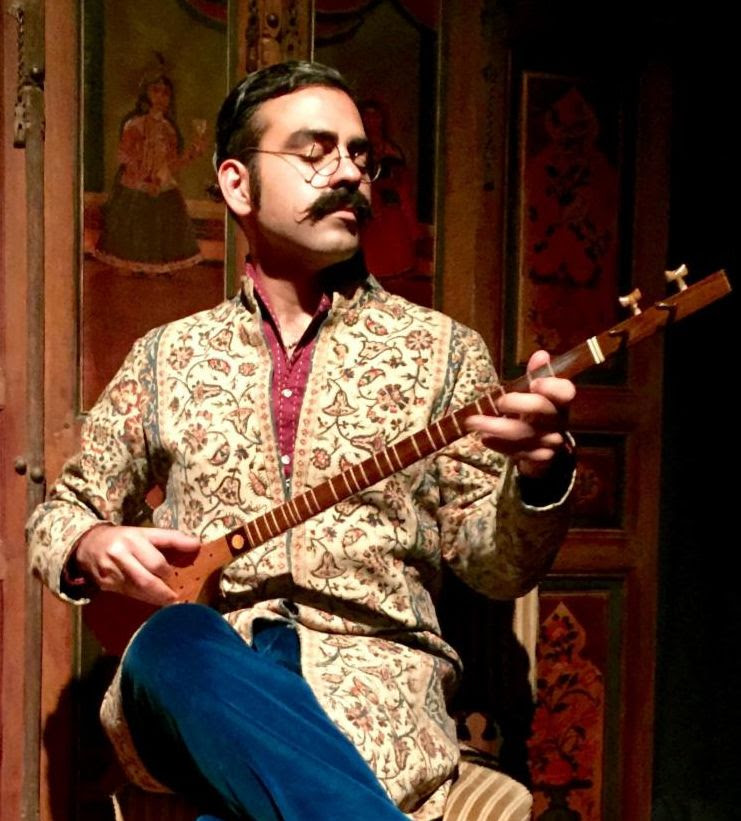
Farhang Foundation is proud to welcome renowned artist, Fared Shafinury to this special edition of #FarhangPerformances
Fared Shafinury is a widely celebrated & critically acclaimed singer/songwriter, composer, Persian setār virtuoso, and performing artist. Born on the Gulf of Mexico, Shafinury’s hyphenated cultural identity has propelled his music to the forefront of authenticity in bridging the musical gap between West and East. His discography and live concert appearances both depict a trail of experimentation that’s rooted in a deep understanding of the classical Persian modalities, as well as his classical western upbringing. Shafinury’s latest concert tour, Microtone (which was abruptly halted due to the ongoing pandemic), explores the deeper roots within classical Persian music and how this cultural heritage is anchored into the natural world. In recent years, Shafinury has embarked upon creating an online school of classical Persian music theory, known as the Radif Retreat Institute. Teaching to a wide array of students from all over the world, Shafinury’s bilingual and multi-cultural approach has helped unlock the many secrets of this elusive art form, helping many non-Iranians as well as dual-Persian identities, to connect and understand the ancient modal system in its current form. In recent months, Shafinury has begun recording a monthly series of home concerts, known as The Belafonte Sessions, and he is honored to announce that he has dedicated this first live session to Farhang Foundation. Here in this first session, Shafinury performs two pieces in the mode (Dastgāh) of Āvāz-e Bayāt-e Tork (Zand). He has chosen to perform in this specific mode in order to highlight the main study of the Radif Retreat Institute, which also happens to be Bayāt-e Tork, for the autumnal season. The first piece in this recording session, Sham-e Shaban-e (Nocturnal Candle), is from an oldie but goodie tasnif (ballad), with the lyrics written by Moeini Kermanshahi, and originally sung by Dariush Rafiee in the early 1950s. In Shafinury’s rendition of this Tasnif, we can hear a pulsing backdrop of electronic beats, accompanied by his groovy approach to both the Persian setār and āvāz (vocals). The second piece, Kooh bayad shod (Become the Mountain), is a full-blown improvisation-off-the-cuff performance, depicting traditional āvāz (a non-metric form of improvisational classical Persian singing). The poem, however, is not of the classical form. It was written by the great modern poet, Hamid Mosadegh, in the late 60s. These lyrics were always a favorite of Fared’s, introduced to the poem some fifteen years ago. Today, in this pandemic, Shafinury felt that the late words of Mosadegh represented much of his feelings about the state of the world he finds himself in today. We advise our lovely listeners to please listen with your headphones on, or with high-quality speakers and thank you for tuning in. Download today’s audio tracks now on Apple Music and Spotify. Follow Fared Shafinury at: https://faredshafinury.com https://www.facebook.com/Tehranosaurus https://www.instagram.com/faredshafinury https://soundcloud.com/fared-shafinury To learn more about #FarhangPerformances and to see all our current episodes please visit us at: https://farhang.org/programs/farhang-…
